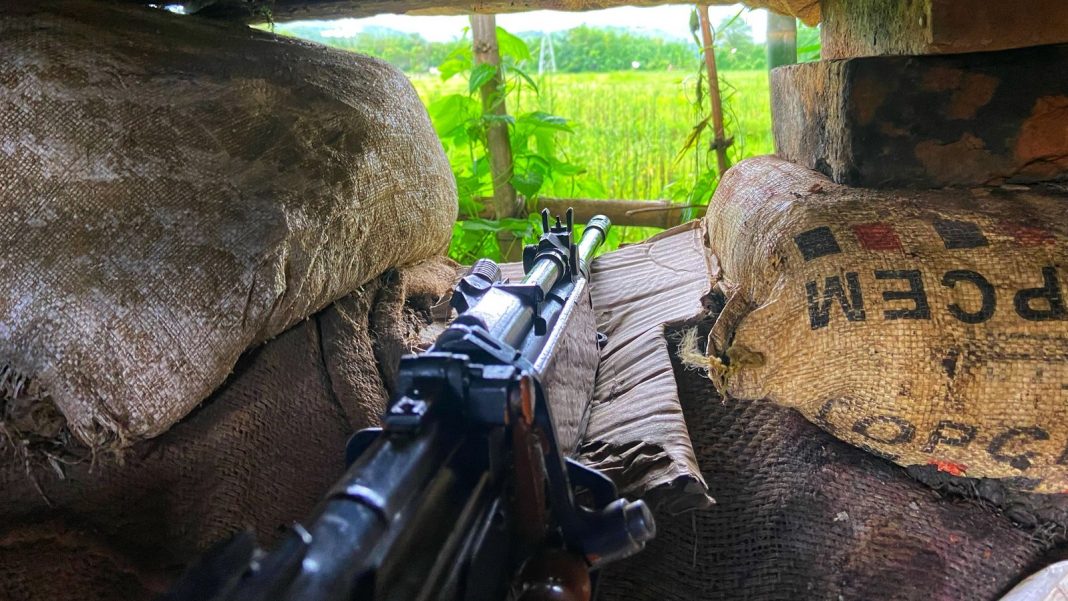A vicious sectarian conflict has gripped the small Indian state of Manipur for months.
While there have been tensions in the past between the majority Hindu Meitei community and minority Christian Kuki-Zomi tribe in the remote northwest of the country, it has escalated into bitter fighting since May.
Street protests erupted into armed violence over demands to extend official tribal status to the Meiteis, entitling them to benefits previously reserved for the Kukis.
Please use Chrome browser for a more accessible video player
0:23
Women paraded naked and assaulted in India
The minority group argued this would bolster the already strong influence of the dominant community and lead to encroachment onto their land.
More than 140 people have so far been killed in the unrest and hundreds wounded, while there was outrage over video which showed two Kuki women being paraded naked and assaulted by Meitei men – with one allegedly gang raped.
As tensions mount, Sky’s India reporter Neville Lazarus visits a village which has seen a surge in violence.
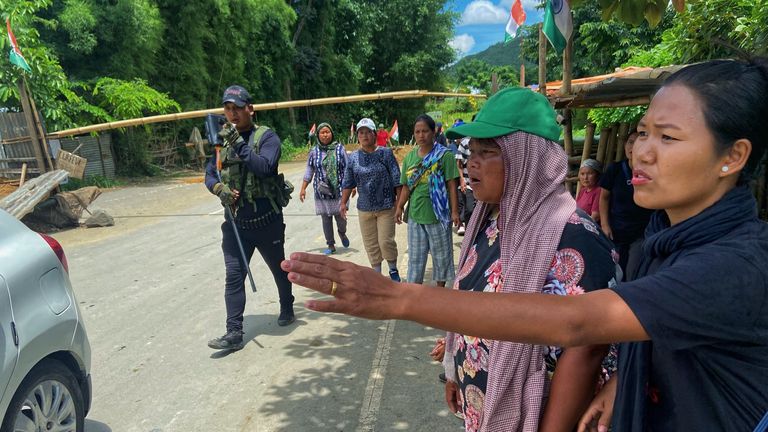
A checkpoint in a Kuki area
You get a sense of tension on approaching the border village of Phoghakhao Ikhai in Bishnupur district.
There is heavy security as it is the last Meitei village under the control of the majority community.
From here, national highway two leads into the southern district of Chaurachandpur, a stronghold of the tribal Kuki-Zomi community.
Alex, a commando from the state force, walks me through to a home that has been burnt overnight.
He said: “It’s like guerilla warfare, they come from the mountains shooting at us and throwing bombs that they make themselves.”
The house is still smoking and everything is destroyed.
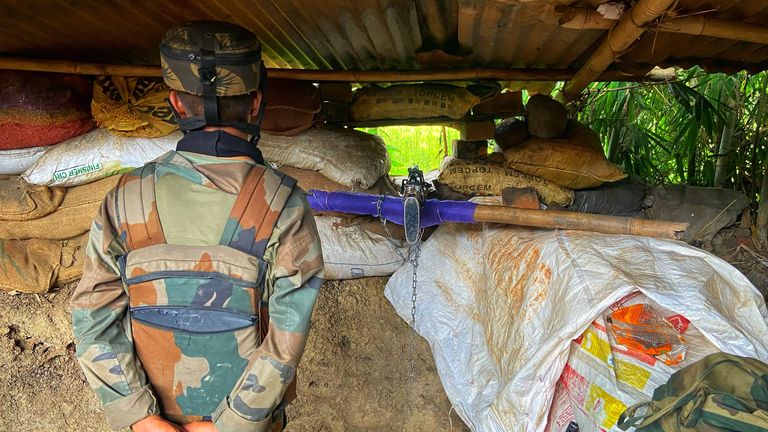
Thousands of troops have been sent to the area
Jyoti, 32, said it is his grandmother’s home.
Describing the attack, he added: “Around 50 to 100 militants coming from the hillside firing on civilians, and then they are burning our house.”
Jyoti picks up empty shells from automatic rifles and points to bullet holes in the adjoining building.
The remote northeastern state of Manipur has been engulfed by ethnic clashes since May.
The conflict between the majority Meitei community that live in the valley and the tribal Kuki population that inhabit the hills has claimed more than 140 lives and left 60,000 homeless.
Hundreds of homes, businesses, churches, and temples have been burnt down and destroyed.
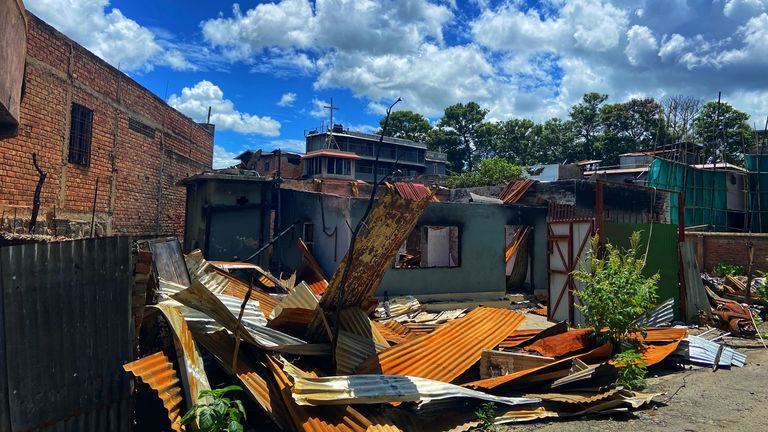
Homes have been razed the ground in both communities
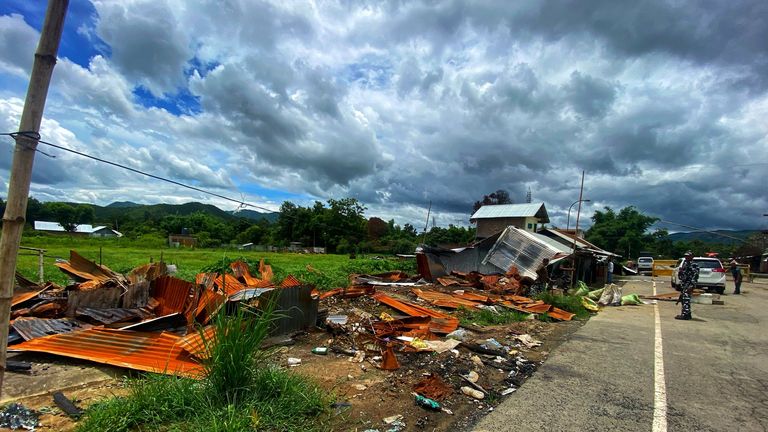
Thousands of soldiers and personnel from the Indian military, paramilitary and security forces have been deployed to keep the peace.
Alex takes us to a paramilitary blockhouse from where a soldier shows me positions of tribal Kukis who have dug in along the foothills of the mountains.
The military are there to stop the violence, but are often accused of siding with the other community.
An officer of the Assam Rifles, who did not want to be named, said: “We are caught in the middle, even our supplies are air dropped by chopper as our convoys are stopped and not allowed to pass.”
We travel to the opposite side of the divide into the tribal Kuki territory.
Le Lan, a teacher-turned-volunteer fighter, said: “It’s a fight for survival, for me and our future generations.”
Scanning the area with binoculars, he added: “We can see the enemies bunker over there, the Meitei bunker, so when they fire, we have to retaliate so that they don’t venture into our territory. To push them back we also have to fire on them.”
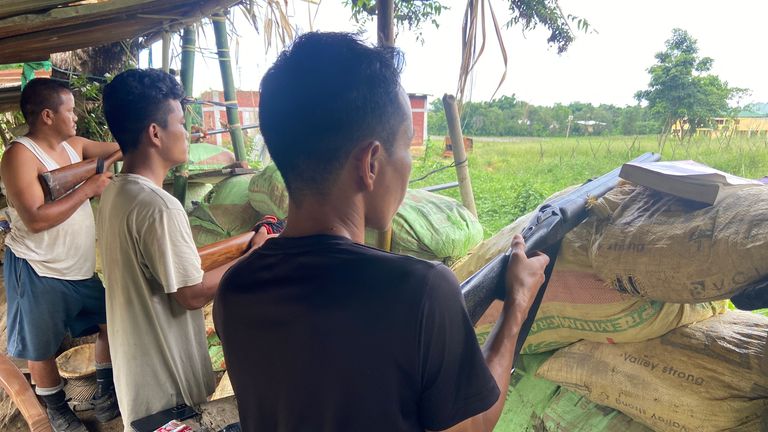
Kuki volunteers say it is a ‘fight for survival’
John, a college graduate manning another post, said: “They attack us every night, between midnight and three in the morning. They use mortars which is supplied by the state, it worries us.”
As we head towards the main town of Chaurachandpur, there are checkpoints with dozens of women examining vehicles and identities of people.
Mercy said: “We check for Meitei infiltrators, and those who carry arms and drugs.”
At a sit-in protest in the town, thousands of women have gathered in song and prayer for those who have died.
A martyrs’ wall with photographs of all those killed in the violence forms a backdrop of the stage from where speeches are made.
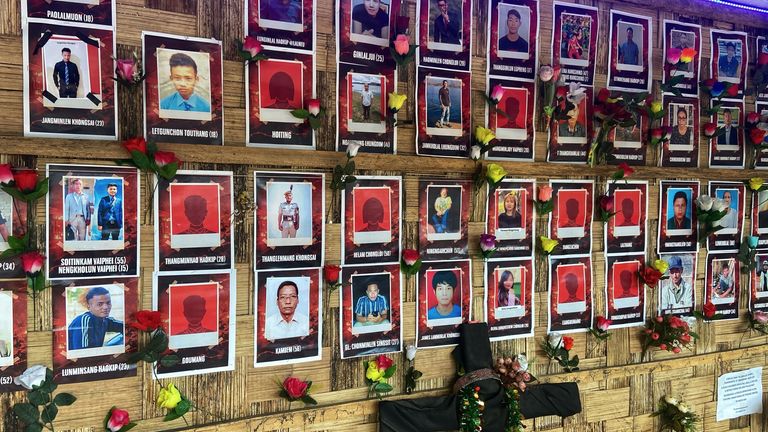
A martyrs’ wall displays pictures of victims of the violence
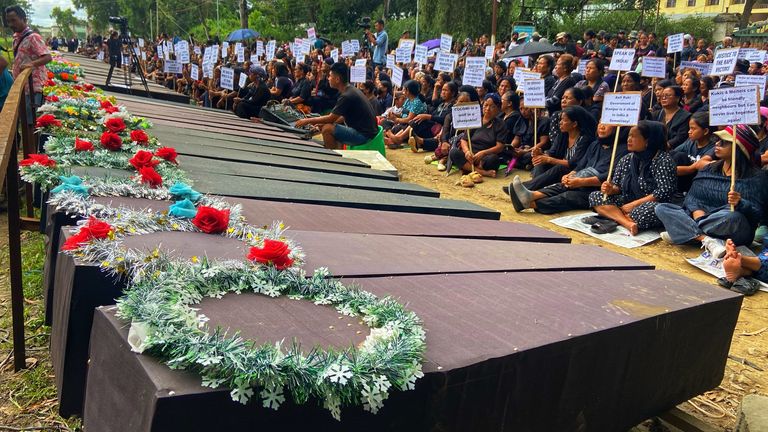
There are dozens of coffins lined up – a symbol of what the families have gone through.
There is no closure for families as more than 90 bodies are still in mortuaries in hospitals in Imphal.
The plan is to do a mass burial only when all the bodies are brought back to their territory.
Ginza Vualzong, a spokesperson for the Indigenous Tribal Leaders Forum (ITLF), an umbrella organisation of prominent tribes, said: “The situation is volatile and far from normal.
“We do not see any scope for us to live together anymore. The only solution is for the central government to give us a separate administration.”
The majority Meitei community allege the Kuki tribe are involved in poppy cultivation, the illegal drug and arms trade and bringing in Burmese nationals to fight for them.
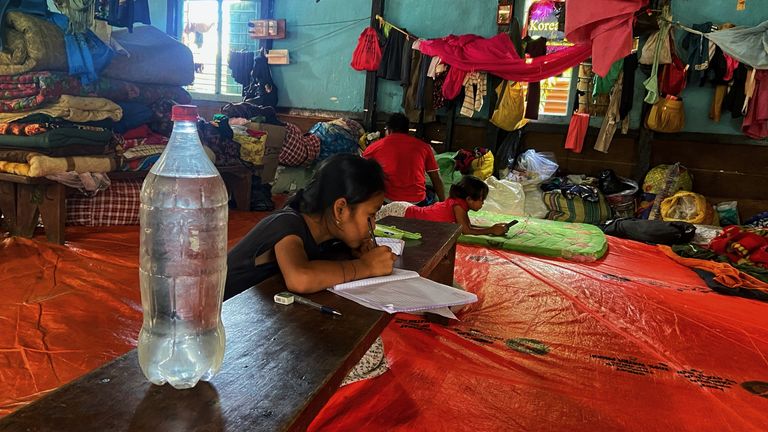
Thousands have been forced to flee on both sides and seek sanctuary in refugee camps
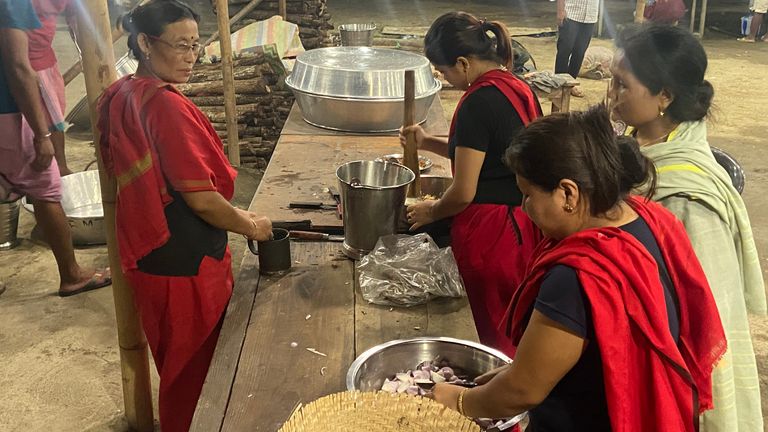
Prime Minister Narendra Modi’s government has been severely criticised for not having done enough and sooner.
He spoke out on the violence on the first day of the monsoon session of parliament many weeks later.
There is a clear divide.
The Imphal valley has been cleared of tribal Kukis, their homes, businesses and churches burnt down.
The same has been done to Meitei communities living in tribal areas, with properties demolished and the land flattened.
The tit-for-tat violence has left thousands homeless and forced to live in refugee camps.
Hatoi, 36, who escaped into the forest with 300 others, said: “The mobs burned our whole village, it’s not safe for us.
“We thought we were like brothers and sisters, but they burnt our homes and made us homeless. We do not trust them, can’t live with them.”
Here hatred and violence is all-consuming, creating differences that will take generations to heal.


